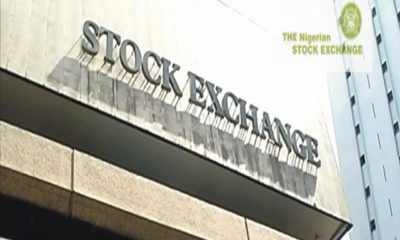- Utilise Capital Market to Fund Budget, Experts Tell FG
Capital market experts have urged the Federal Government to utilise the capital market to fund the budget.
The experts, who spoke at the 3rd Annual Budget Seminar of the Securities and Exchange Commission, themed, “Budgets, Elections and capital markets: Risks and opportunities in 2019, urged the government to make the capital market the fulcrum of its industrialisation agenda and economic development in a bid to urgently lead the country out of poverty.
The acting Director General, SEC, Ms Mary Uduk, said the government budget always affected the economy, while the economy in turn would affect the capital market.
She said, “Stakeholders, both local and foreign, are interested in the budget and try to analyse how it affects them. Investors also sit down and analyse the budget and that is why the capital market is looking at the impact of the budget and how the market can aid its implementation.
“The capital market is very important in funding for a lot of projects in the economy. The capital market is important in raising the money to fund the budget. We want to be in the driver seat and contribute to the budget of the Federal Government.
“We are interested in driving and contributing to this economy and that is why we are having this seminar. We believe there are a lot of opportunities for the capital market in this budget. There is a need for us to sit down again as a capital market community and find ways of driving the budget.”
The Chief Executive Officer, Emerging Africa Group, Mrs Toyin Sanni, said there was a misalignment of priorities in the 2019 budget allocation.
She stated that infrastructure development was of optimal importance for the achievement of development of sustainable prosperity, adding that all sectors were dependent on infrastructure to attract investment and ensure the active participation of the private sector.
The Head, Economic Research, SEC, Dr Afolabi Olowookere, said opportunities existed for equities and sub-national issuances and urged state governments to explore the capital market for the funding of their projects.
He urged the Federal Government to lower its domestic borrowing to make room for private issuances.
He stated that some of the ways the budget could be funded were the creation of money market-based instruments and trading, commodity trading and derivatives, investment in eligible companies under tax credit scheme as well as the attraction of restructured oil assets to list.
Speaking on elections, the Head, Department of Banking and Finance, Nassarawa State University, Professor Uche Uwaleke, said a lot of the factors that contributed to the negative performance of the capital market pre-election were still in play.
According to him, uncertainties around the recently concluded general elections are still lingering in the market.
He noted that most stock prices remained low, despite the positive and encouraging earnings report posted by companies.
Uwaleke, however, urged investors to take advantage of the low prices, describing it as a good entry point.


 Naira3 weeks ago
Naira3 weeks ago
 News4 weeks ago
News4 weeks ago
 Naira4 weeks ago
Naira4 weeks ago
 Jobs3 weeks ago
Jobs3 weeks ago
 Travel3 weeks ago
Travel3 weeks ago
 Naira3 weeks ago
Naira3 weeks ago
 Naira3 weeks ago
Naira3 weeks ago
 Investment4 weeks ago
Investment4 weeks ago



























